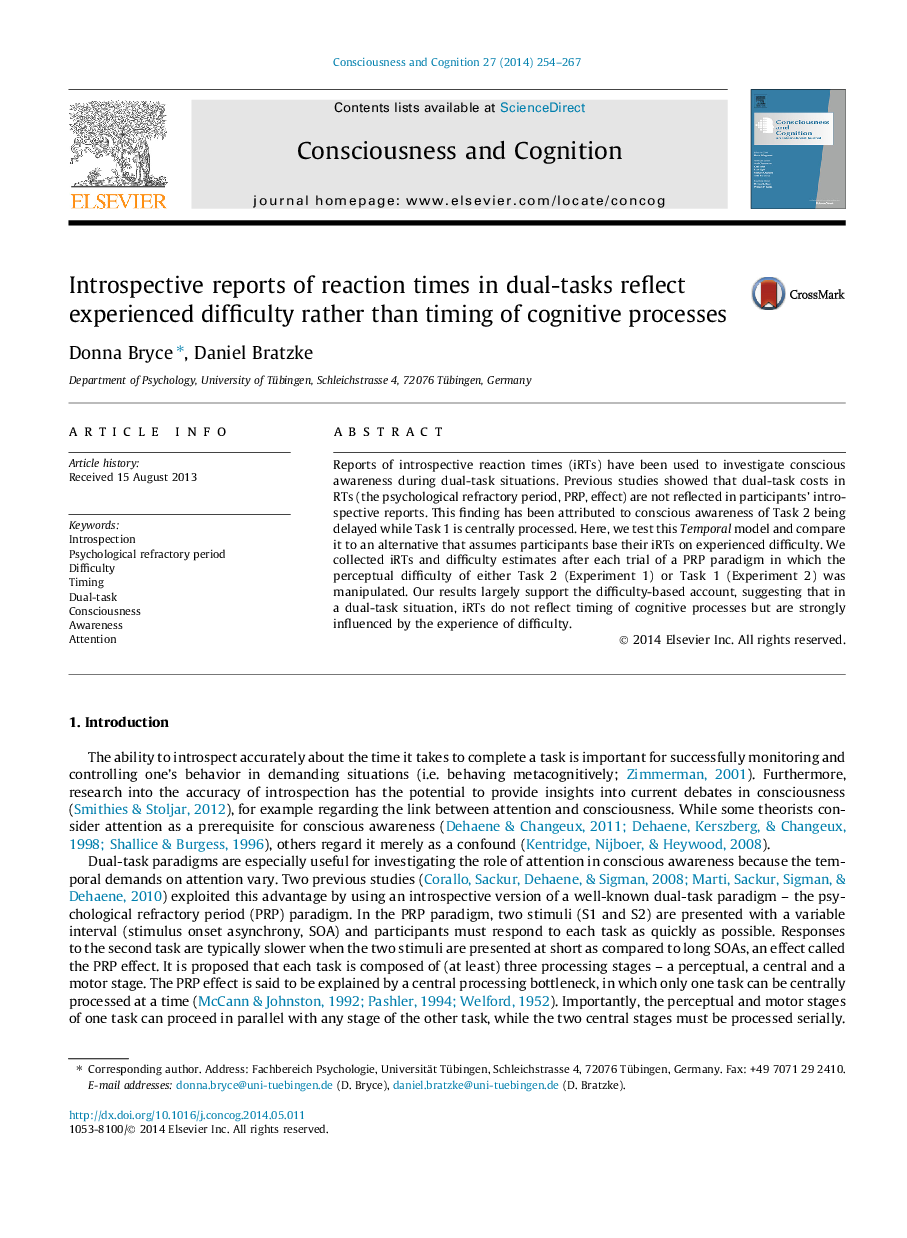| Article ID | Journal | Published Year | Pages | File Type |
|---|---|---|---|---|
| 7290040 | Consciousness and Cognition | 2014 | 14 Pages |
Abstract
Reports of introspective reaction times (iRTs) have been used to investigate conscious awareness during dual-task situations. Previous studies showed that dual-task costs in RTs (the psychological refractory period, PRP, effect) are not reflected in participants' introspective reports. This finding has been attributed to conscious awareness of Task 2 being delayed while Task 1 is centrally processed. Here, we test this Temporal model and compare it to an alternative that assumes participants base their iRTs on experienced difficulty. We collected iRTs and difficulty estimates after each trial of a PRP paradigm in which the perceptual difficulty of either Task 2 (Experiment 1) or Task 1 (Experiment 2) was manipulated. Our results largely support the difficulty-based account, suggesting that in a dual-task situation, iRTs do not reflect timing of cognitive processes but are strongly influenced by the experience of difficulty.
Keywords
Related Topics
Life Sciences
Neuroscience
Cognitive Neuroscience
Authors
Donna Bryce, Daniel Bratzke,
